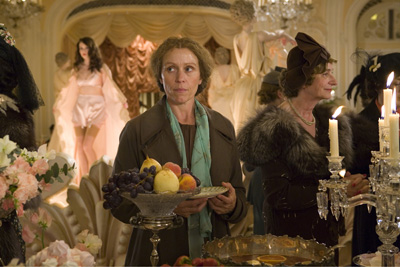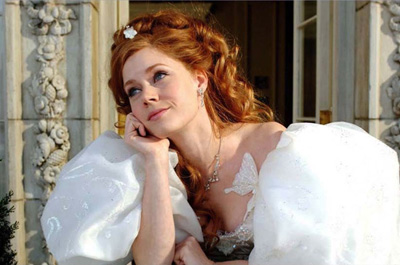Doubt
Posted on April 7, 2009 at 8:00 am
Before movies, there were plays, and before plays there were stories told around the campfire. One of the deepest human impulses is the need to tell our stories in part because of the way they help us make sense of the world. Stories have a beginning, a middle and an end and stories have a purpose. Extraneous details are excluded and everything we are told is there to help us understand. The power of stories is that they provide something life cannot — certainty and a sense of control.
“Doubt” is a story that turns this upside down. The title refers not just to the question of proof of the ugly allegation at the heart of the story but to our own need for certainty and understanding in a world that is ambiguous and contradictory.
It takes place in 1964, a transitional moment just after the assassination of John F. Kennedy and in the middle of the Vatican II Ecumenical Council that would bring great change to the practice of Catholicism. We smile now as school principal Sister Aloysius (Meryl Streep) , comes down firmly against ball point pens and “Frosty the Snowman” because we know how small those incursions on tradition are in comparison to the upheavals of the late 1960’s. Sister Aloysius wears the heavy, formal religious habit modeled after Italian mourning garb of the 19th century, with a black bonnet enclosing her head so completely it might as well be blinders.
Sister Aloysius, named for the patron saint of youth, knows about mortal sins far more serious than pens and secular Christmas songs. She thinks, no, she knows that one of the most horrifying has been committed in her school. She knows, without a doubt, that the priest, Father Flynn (Philip Seymour Hoffman) has behaved inappropriately with a student. And he is not just any student; he is the first black child to enroll in the school.
Sister Aloysius is certain, but we are not, and the most compelling aspect of the movie, based on the Pulitzer Prize-winning play, is the way that it keeps us from any kind of certainty. Every time you think you’ve made up your mind who is right, another scene challenges you assumptions. By the time the boy’s mother (Viola Davis, in one of the most mesmerizing performances of the year) gives her point of view, the movie becomes something of a Rubik’s cube, twisting not just facts but values in both directions at once. Like life.

 A delicious retro romp about a failed nanny who finds her true calling when she transforms the life of a flighty singer, this film is designed around two fabulously entertaining stars, Frances McDormand and Amy Adams.
A delicious retro romp about a failed nanny who finds her true calling when she transforms the life of a flighty singer, this film is designed around two fabulously entertaining stars, Frances McDormand and Amy Adams.